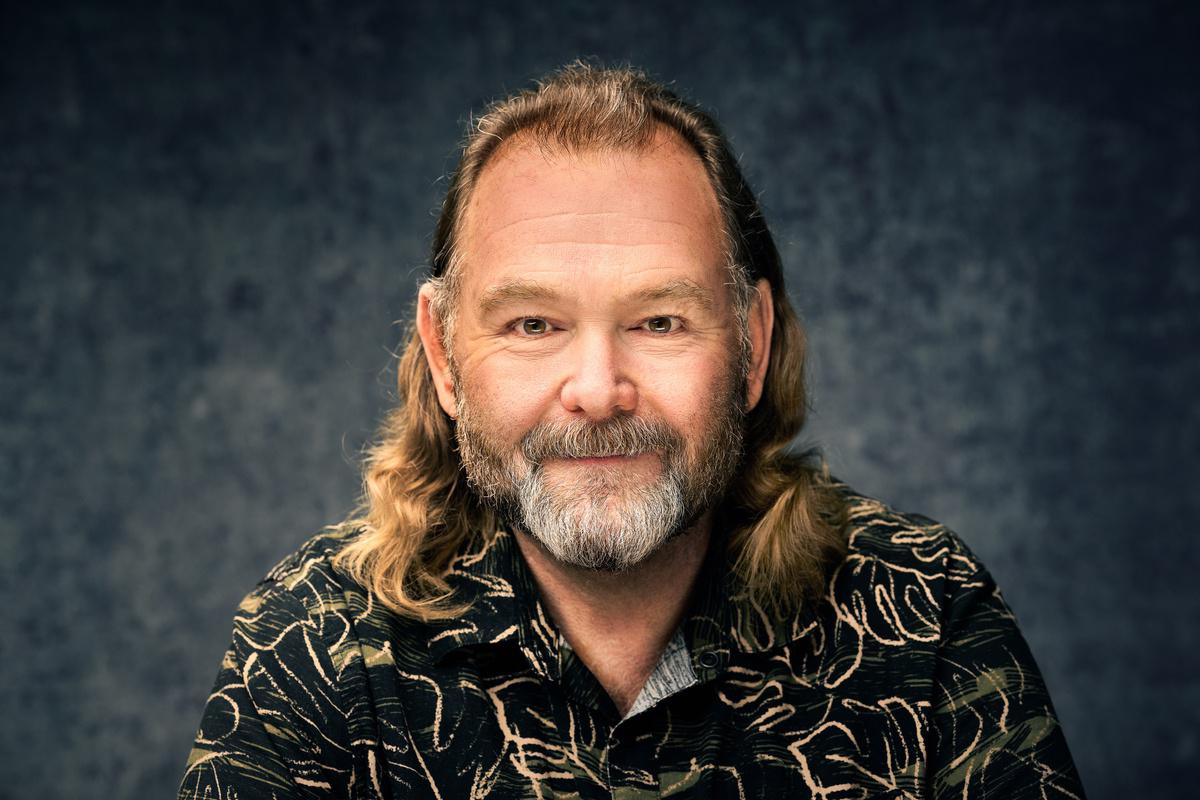Bill Putnam Jr is cut from the same cloth as his father and was responsible for resurrecting the … [+]
Few technology companies can hold on to market leadership for one or two decades, let alone create a solid reputation that’s lasted for more than 60 years. However, that’s exactly what CEO Bill Putnam Jr. and Universal Audio Inc have managed to do by producing some of the music industry’s best-loved recording technology. Universal Audio has an incredible heritage. I wanted to know more about how the company was established and managed to build such an iconic reputation within the music production industry.
Universal Audio (UA) was founded by audio recording pioneer Bill Putnam Sr in 1958. The company was resurrected in 1999 by Putnam’s sons, Bill and Jim, after their father’s death. Over the years, the company built an enviable reputation with pro recording engineers and producers. UA equipment has become synonymous with quality, innovation and craftsmanship.
For the past 60 years – minus a 15-year hiatus between the death of Bill Putnam Sr. and his sons’ refounding of the brand – UA has moved from manufacturing classic 1950s-era tube-driven mixing consoles. Those consoles were used to record legends like Ray Charles and Frank Sinatra – to 1960s-era audio compressors that shaped the sound of bands like the Beatles and Led Zeppelin. These days, the company makes modern computer audio interfaces, digital effects pedals and plug-in software used on recordings by Adele, Lizzo, Doja Cat and many other A-list artists.
Bill Putnam Sr founded UA after serving in the US Navy.
“It’s really exciting to design equipment that’s used as part of a great musician’s palette, knowing that the gear we build helps inspire their art,” says Bill Putnam Jr. “As someone who inherited my dad’s love of both music and technology, I have a wonderful supporting role in helping artists create sounds they love. But I’ve also had rockstars hurl microphones at me from the stage when that wasn’t the case… it’s all part of the fun.”
Headquartered in Scotts Valley, California, with offices in Boulder, Colorado and Amsterdam, Universal Audio now employs more than 250 musicians, engineers and audio professionals who deliver a growing range of audio and music products to a customer base that includes Grammy-winning producers, professional and aspiring musicians, home studio owners, bedroom beatmakers… in fact, audio content creators of all types.
The shortest history of the “modern” UA is that Putnam Jr. refounded the company in 1999 as a side project while studying digital signal processing at Stanford University. The goal of the side project was to faithfully recreate some of his dad’s classic audio gear from the 1960s. The project led Putnam Jr. and his colleagues down a rabbit hole of DSP and algorithmic modeling.
Bill Putnam Sr produced the equipment that made classic recordings of stars like Nat King Cole.
By the time Putnam and his group had finished their first hardware prototype (a version of the classic LA-2A audio compressor), they already had the blueprint for recreating the fabled rich, warm analog sounds with software.
Fast forward to 2023, and UA now has more than a million users of its music hardware, including Apollo and Volt computer audio interfaces, UAFX guitar effects pedals and UA microphones. The brand also has a booming audio software plug-in business and a popular new subscription service called UAD Spark.
With the democratization of the music recording business over the past 25 years, there’s been a move from expensive professional recording studios to smaller home and bedroom studios. UA’s products have filled that niche, delivering sonic quality that was arguably only available when using large recording consoles, tape machines and racks of fancy esoteric gear. For the future, UA is looking to move beyond music recording by turning its attention to the burgeoning market for audio content creators, helping them deliver studio-quality sound to their podcasts, TikToks and YouTube videos.
It was Universal Audio kit like the 610 that enabled people like Brian Wilson of the Beach Boys to … [+]
“I’m excited about our growth trajectory, which involves broadening our ecosystem and becoming a much bigger part of the creative process for our customers. We’re not the company that will go do a ‘me too’ product at a lower price. We work to solve new problems for our customers and to deliver inspiring quality, no matter where our customers are in their journey,” says Putnam Jr.
UA’s early software success depended mainly on its ability to emulate expensive, hard-to-find analog recording gear and effects with greater sonic authenticity than ever before. Today, after two decades of emulating classic audio equipment, UA has more than 140 software titles in its UAD plug-in library, renowned for their authenticity. UA has recently leveraged this software know-how into new product categories, such as its UAFX guitar effects line. It is now recognized as one of the best emulations of classic guitar amps ever placed into a stompbox.
“The passion our customers have for their creative tools makes music technology such a unique industry,” says Putnam Jr. “You need to understand musicians to thrill and delight them. At UA, we’re obsessed with the nuances of audio. We go to great lengths that few others can or will because we know this may be the thing that inspires a musician or engineer to create something unique.”
Today, Universal Audio not only makes its classic studio products but also has more affordable home … [+]
True to its 1958 roots, UA continues to manufacture classic analog equipment and microphones that Putnam Sr was famed for. This classic gear is made at UA Custom Shop in Santa Cruz, California.
“The analog gear we build at our Custom Shop is handmade and highly crafted, some made with old stock vacuum tubes. Analog hardware has a unique sonic fingerprint that musicians still crave,” says Putnam Jr. “We do a great job of capturing that sound in our software plug-ins, but there’s still a creative immediacy with physical knobs and a romance with glowing tubes that may inspire a performance. We know one size doesn’t fit all for creativity; there’s room for all different types of equipment.”
Bill Putnam Sr. was a famed engineer and producer for artists including Duke Ellington, Nat King Cole, Ray Charles, Frank Sinatra and dozens more. He was also a natural entrepreneur who started multiple audio product companies during his long career. The equipment these companies built remains widely used decades after their introduction, including the LA-2A and 1176 audio compressors and the 610 tube recording console. The 610 console, in particular, stands as one of the most beloved designs in audio history and has been used to record everyone from Sinatra to the Beach Boys and Van Halen. These products stemmed more from Putnam Sr’s sense of pragmatism rather than a deliberate business strategy.
The Apollo and Luna interfaces are the bedrock of modern home studio recording.
“Back in the 1950s, when my father started the business, there wasn’t an industry around selling recording equipment. It was all equipment you had to scavenge from radio, broadcast, or telephones. It has to be adapted for the studio,” says Putnam Jr. “And my father realized that if he needed a mixer or compressor specifically for music production, then there must be a lot of other people that do, too. So, he just started making his own equipment and began selling it.
“Recording technology fascinated my father, but at the end of the day, it was just a tool to get to a musical performance. The thing he liked to do more than anything was to go see jazz and big bands,” recalls Putnam Jr. “He always said musicians were his favorite people. His love of the technology rubbed off on me first, but it was the music, at the end of the day, that was everything to him.”
Growing up around his father’s entrepreneurial spirit and technical know-how fueled Putnam Jr’s passion for electronics from an early age. But it wasn’t a direct path toward refounding Universal Audio. Initially, his appreciation for music took a backseat to his dreams of becoming an electrical engineer until he took a break from college to travel around the country following the Grateful Dead.
Bill Putnam Jr is continuing his illustrious father’s work with a whole new range of products … [+]
“That experience was a huge lesson on how big of an impact music can have on all levels — personally, culturally, and technologically. It was at one of those shows that I realized that I wanted to be a part of music technology. And from that moment on, I was laser-focused on learning what I needed to do, specifically to manipulate audio in the digital domain, which allowed me to bridge my technical passion with that of my father from decades before.
“I realized when we restarted UA that we had an obligation to craftsmanship, to do my dad proud. I accepted his Lifetime Achievement Grammy after he’d died, but I never thought I’d personally accept another Grammy. Fast forward a few years and the “modern” Universal Audio was awarded a Technical Achievement Grammy in 2009.
“To have that come around full circle, to see my father’s work honored, and then be acknowledged for the work we’re doing now is amazing. Like, we did it right. We’re doing it right.”
More info: www.uaudio.com
Would Sinatra ever have sounded so good without the genius of Bill Putnam Jr?



